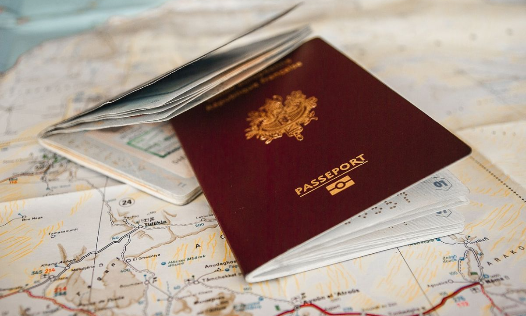Payment is being processed. Please do not refresh or close this page until your payment is complete.
 Book an Appointment
Book an Appointment

The Italian government has introduced stricter citizenship rules, requiring applicants to have closer ancestry ties, pass a language test, and meet residency conditions. These changes could affect thousands of people worldwide seeking an Italian passport.
The government of Italy has recently implemented stricter regulations on citizenship by descent, impacting thousands of applicants worldwide. The updated law, which took effect immediately, significantly narrows eligibility criteria and introduces new requirements for those seeking an Italian passport.
What Is Citizenship By Descent?
Citizenship By Descent (jus sanguinis) is a legal right allowing individuals to acquire nationality based on their ancestry. Many countries grant citizenship to those with at least one parent or grandparent who was a citizen at birth.
Why Has Italy Tightened Citizenship Rules?
The move follows a surge in applications from descendants of Italian emigrants. Officials have raised concerns over “abusers” who acquire Italian citizenship mainly to benefit from visa-free travel rather than genuine ties to Italy.
“Being an Italian citizen is a serious matter,” stated Foreign Minister Antonio Tajani. “It’s not just about getting a passport to go shopping in Miami.”
Key Changes to Italian Citizenship by Descent
Previously, individuals could claim Italian citizenship if they could trace their ancestry to an Italian relative who was alive after the country’s unification in 1861. However, the new regulations have introduced the following restrictions:
1. Limited Ancestral Lineage
Previously, anyone with an Italian ancestor who was alive after March 17, 1861, could apply. Now, applicants must have at least one Italian parent or grandparent. This significantly narrows the pool of eligible individuals.
2. Language Proficiency Required
Applicants must now demonstrate Italian language proficiency, a requirement previously reserved for those naturalizing through residency or marriage. This involves passing a state-administered exam.
3. Potential Residency Requirement
While immediate residency isn’t enforced, applicants may face the need to demonstrate a prior three-year period of living in Italy. This could involve providing proof of address, employment, or study, showcasing genuine ties to the country.
4. Dual Citizenship Scrutiny
Dual citizens must actively “engage” with Italy to maintain their status. This includes consistent tax contributions, participation in elections, and timely renewal of Italian passports, indicating an ongoing connection beyond mere passport possession.
5. Consulate Application Halt
Italian consulates worldwide will no longer process citizenship applications. This mandates that overseas applicants navigate the process within Italy, adding logistical and financial burdens and requiring direct interaction with Italian authorities.
Impact on Citizenship Applications
The decree, published in Italy’s official gazette on March 28, will be subject to parliamentary ratification within 60 days. However, as of now, new applications must adhere to the updated criteria.
The changes also put existing dual citizens at risk of losing their Italian nationality if they fail to “engage” with Italy by paying taxes, voting, or renewing their passports.
How Many People Are Affected?
Italy’s Ministry of Foreign Affairs estimates that 60 to 80 million people worldwide were eligible for Italian citizenship under the previous rules—more than Italy’s current population of 59 million. The number of Italian citizens living abroad has surged in the past decade.
Key Statistics:
• Italian citizens residing abroad increased by 40% from 2014 to 2024.
• The number grew from 4.6 million in 2014 to 6.4 million in 2024.
• Over 60,000 legal cases for citizenship determination are currently pending.
With these new regulations, many aspiring applicants with Italian ancestry may now face stricter requirements, reshaping the citizenship process.
What’s Next for Aspiring Italian Citizens?
While the law will undergo parliamentary review, applicants should prepare for a more rigorous process. The introduction of stricter ancestry requirements, language tests, and residency criteria signals a shift towards prioritizing genuine connections to Italy over passport convenience.
Final Thoughts
For those planning to apply, staying informed about possible amendments in the coming months will be crucial. As Italy redefines its approach to citizenship, applicants must meet higher standards to prove their Italian heritage and cultural ties.
Source: https://travelobiz.com/italy-citizenship-by-descent-law-changes-2025/